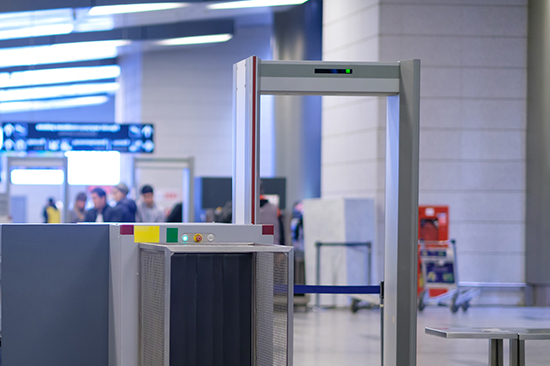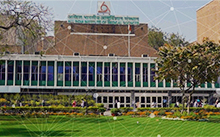With global partners and a local understanding of the Caribbean’s culture, crime and political nature, Security Centres International (SCI) is ideally poised to help promote public safety across the region. Numerous innovative projects involving SCI and Hitachi Visualization are underway in the Cayman Islands, Bahamas, and Antigua and Barbuda. Addressing a wide range of urban safety and security concerns, these initiatives provide realtime visibility, greater situational awareness and faster response for municipal and national agencies.
The more our jurisdictions come together and share information [with Hitachi Visualization], the faster and more effective law enforcement entities can be. We’re talking about a collective intelligence.
Stuart Bostock
President and CEO, Security Centres International

With a forward-thinking vision for his company and a savvy eye for trends, Bostock saw the writing on the beach. “All the islands pretty much face the same challenges with regard to crime,” he says. “Traditionally, the Caribbean islands and nations operated in silos, without a lot of communication among them. What we have begun to see, especially with some of the technologies available today, is a gradual coming together of the jurisdictions. Public safety entities want to better understand how each other are tackling various issues and are more willing to share resources and information.”
One example Bostock cites is in the area of ballistic intelligence. Several Caribbean law enforcement agencies recently shared ballistic intelligence, such as serial numbers for firearms suspected in criminal activity. The sharing agencies were seeing the same firearms showing up in multiple jurisdictions, with implications of organized crime. Now they are collectively tracking that intelligence throughout the Caribbean to more rapidly respond and apprehend criminals.
“The sharing of information is vital to countering crime. We are not just talking about local and state law enforcement and prosecution. Our clients are dealing with the national security of a country. The more our jurisdictions come together and share information, the faster and more effective enforcement, detection and prosecution of crimes will be. We’re talking about collective intelligence,” Bostock adds

SCI has been integral to many of these information sharing initiatives, including projects in the Cayman Islands, Bermuda, the Bahamas and Antigua and Barbuda.
Cayman Islands:“In 2010, the Cayman Islands government issued a request for proposal for a national video surveillance system. We had conducted quite a bit of research on finding the right potential strategic partner for this project. We wanted a technology partner and an industry-expert partner in one. Mark Jules and Avrio RMS were spot on for what we envisioned,” notes Bostock.
Avrio RMS Group was considered an early industry leader in IP-surveillance solutions for the public safety market. Avrio designed, engineered and deployed turnkey wireless security solutions for organizations with wide area surveillance needs. At its head was Mark Jules. Today, Mark Jules and Avrio technologies are part of Hitachi Data Systems Public Safety and Data Visualization platform.
SCI won the contract in a multicompany competitive bidding process. The Cayman Islands project involved designing a dual-purpose command and control center for electronic offender monitoring and the national video surveillance program. Sophisticated pole-mounted wireless video surveillance systems were installed, 240 of them, with auto-pan and repositioning capabilities along with automatic license plate recognition.
Nassau, Bahamas:Soon after, the Bahamas put out an RFP for a similar project. SCI again teamed with Avrio and won the bid. The project included designing and building from scratch a national command and control center for the Government of the Bahamas Ministry of National Security, to be located at the Royal Bahamas Police Force (RBPF) Headquarters in Nassau. Over 270 cameras were installed throughout the city as a part of phase one with an additional 250 slated for phase two.
All video feeds are sent wireless or via fibre to a secure server in the RBPF Network Operations Centre (NOC). These camera feeds are integrated with other incoming data sources, such as behavioral analytics systems and computer-aided dispatch (CAD), creating a common real-time operational dashboard, which is a part of Hitachi Visualization Suite (HVS).
The Hitachi Visualization Suite (HVS) offers the ability to easily integrate with third-party data and camera systems (public or private). These additional systems can enhance law enforcement’s visibility into key areas of the city without large investments in additional assets.
“Currently, we are in discussion with the Bahamas regarding additional phases and working with local private companies interested in participating in that national surveillance network,” explains Bostock.“The HVS would allow private companies to give RBPF access to certain cameras on their system, which provides for greater situational awareness during an incident,” he adds.
SCI is also working with the local Bahamian college to roll out video surveillance for the campus. They are determining which public area cameras on campus can be integrated into the national surveillance system at the RBPF, allowing the police to monitor those particular campus cameras in real time.
Another SCI project in discussion is with the Thomas Robinson National Stadium, also in Nassau, and home to popular sports, including soccer, American football and track. Similarly, this project would deploy several hundred video surveillance cameras, and provide access to the police of certain public stadium area cameras, allowing real-time monitoring during large sporting events.
“Hitachi Visualization will be integral to all of these efforts,” Bostock adds.
Antigua and Barbuda:The Government of Antigua and Barbuda is a constitutional monarchy with a British style parliamentary system of government. The government was looking for a national surveillance system for threat detection and urban safety but did not have the capital outlay required to implement such a system.
“Our solution was unique. We partnered with a regional telecommunications company to utilize its in-country resources and infrastructure to build out a video surveillance system and modest command and control center. It has been a success, again based on our work with Avrio and Hitachi. We are now in negotiations to roll out phase two. The government sees great value in this type of system and we are working together to explore how best to expand,” says Bostock.

Hitachi Visualization comprises intelligent edge-capture devices, known as Hitachi Visualization Platform (HVP), and an integrated cloud and mobile software platform called Hitachi Visualization Suite (HVS). Disparate data and multiple video and information systems are integrated to allow sophisticated correlation and pattern detections, enabling end-to-end visibility and accelerated response.
Part of a broader Hitachi Social Innovation vision to improve business and society, Hitachi Visualization delivers a unique set of capabilities for improving public safety. The collaborative efforts of public safety systems with private-entity camera integration encourage new ways to solve persistent crime activity across the Caribbean.
“Hitachi Visualization technologies allow organizations to identify and separate certain camera feeds, which makes it more acceptable for private companies to share video access to law enforcement. It’s a way to immediately have eyes on target,” Bostock details.
Rather than burden the customer site, Hitachi Visualization uses the cloud to support the orchestration and management of video analytics and data. The HVP hardware is highly scalable because it is built in layers, making it nearly limitless. Workflows and analytics fulfill the need for gleaning meaningful insight from data.
“The possibilities are vast. We can autoreposition cameras to capture activity from audio (gunshot) and chemical or nuclear detection. Video feeds from small unmanned aerial vehicles (drones) can also be integrated with the surveillance systems and onto the Hitachi dashboard. Social media is also being used to detect large crowds for instance,” he furthers. “What’s really exciting is that while some of these information sources may not be currently integrated on these projects, they can very easily be added into HVS for live situational awareness wherever and whenever needed.”
What we value about working with Hitachi Data Systems is that it’s a flexible and energetic company with outstanding technologies in this industry. SCI looks forward to continuing great work together.
Stuart Bostock
President and CEO, Security Centres International

When looking ahead, Bostock shares what is new for SCI and his views on the future with strategic partner Hitachi Data Systems. “We have just moved into a new headquarters in George Town, Grand Cayman. It is a 15,000 square feet state-of-the-art, eco-friendly building and will allow us to bring our clients, partners and employees together to discuss solutions and predict future trends. We have also built out our own 24/7 network command and control center to provide the best support, monitoring and response to our Caribbean clients. We are also working on new projects in the Dominican Republic, Trinidad and Tobago, Haiti, Jamaica and some other locations in the region,” he explains.
SCI continues to identify markets and opportunities for new public safety undertakings. The need to align with strategic partners on multiple whole solutions is a top priority.
“We are providing management of services and support, not just a product. Building longer term contractual relationships is key for supporting our public safety clients. So is aligning with the right partners. What we value about working with Hitachi Data Systems is that it’s a flexible and energetic company with outstanding technologies in this industry. SCI looks forward to continuing great work together,” Bostock adds.
What are the impacts of moving in the direction of sharing information among public entities, and between public and private organizations? “What we are seeing is more integration of multiple information sources for the greater good. Typically, video surveillance had been used for evidence, after the fact. Now it is used for live monitoring and detecting criminal activity or behavior, and using analytics to help identify patterns. The impacts are an increase of proactive resources and better response by emergency services. It is true integration and true innovation,” Bostock finishes.







